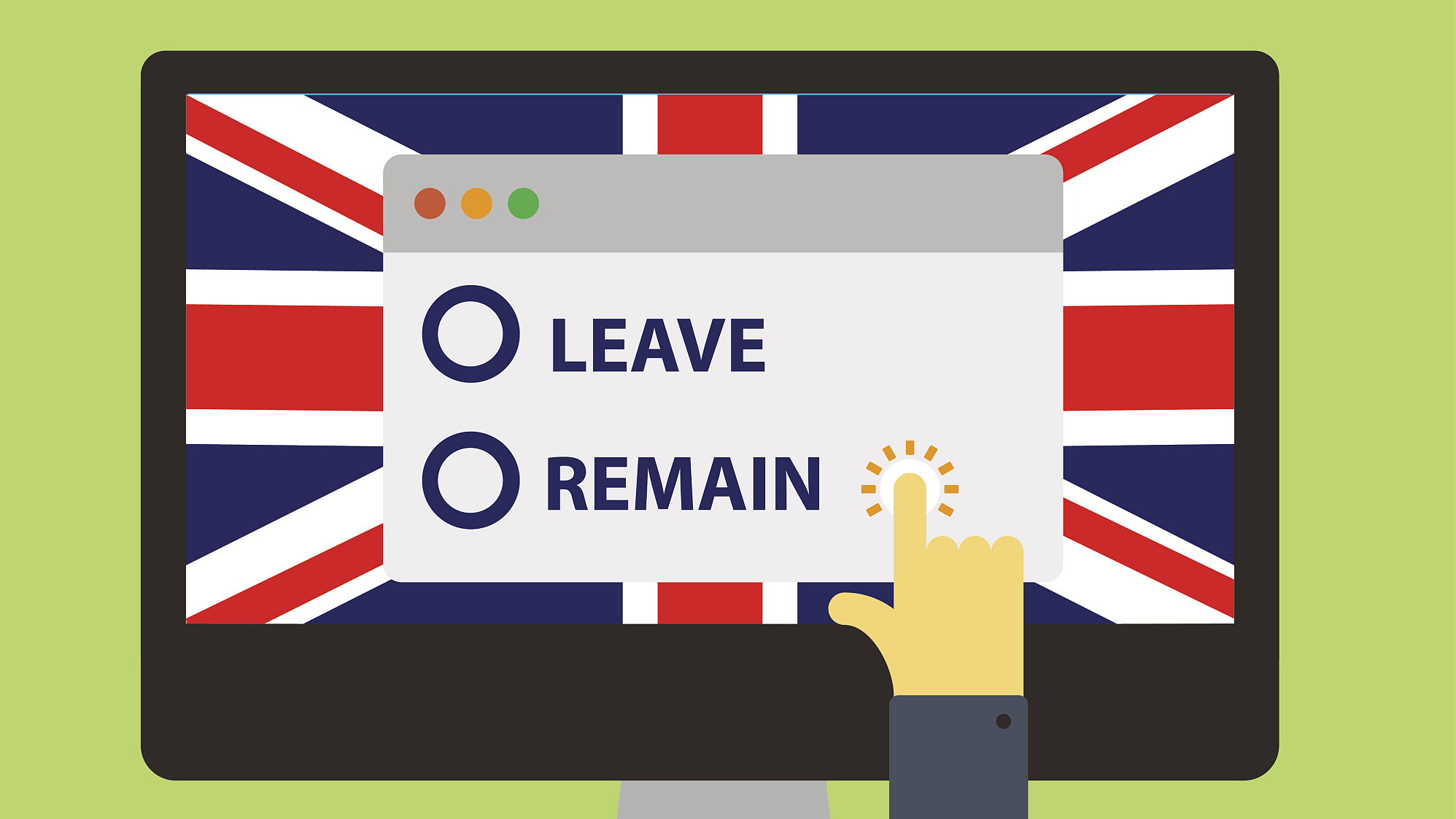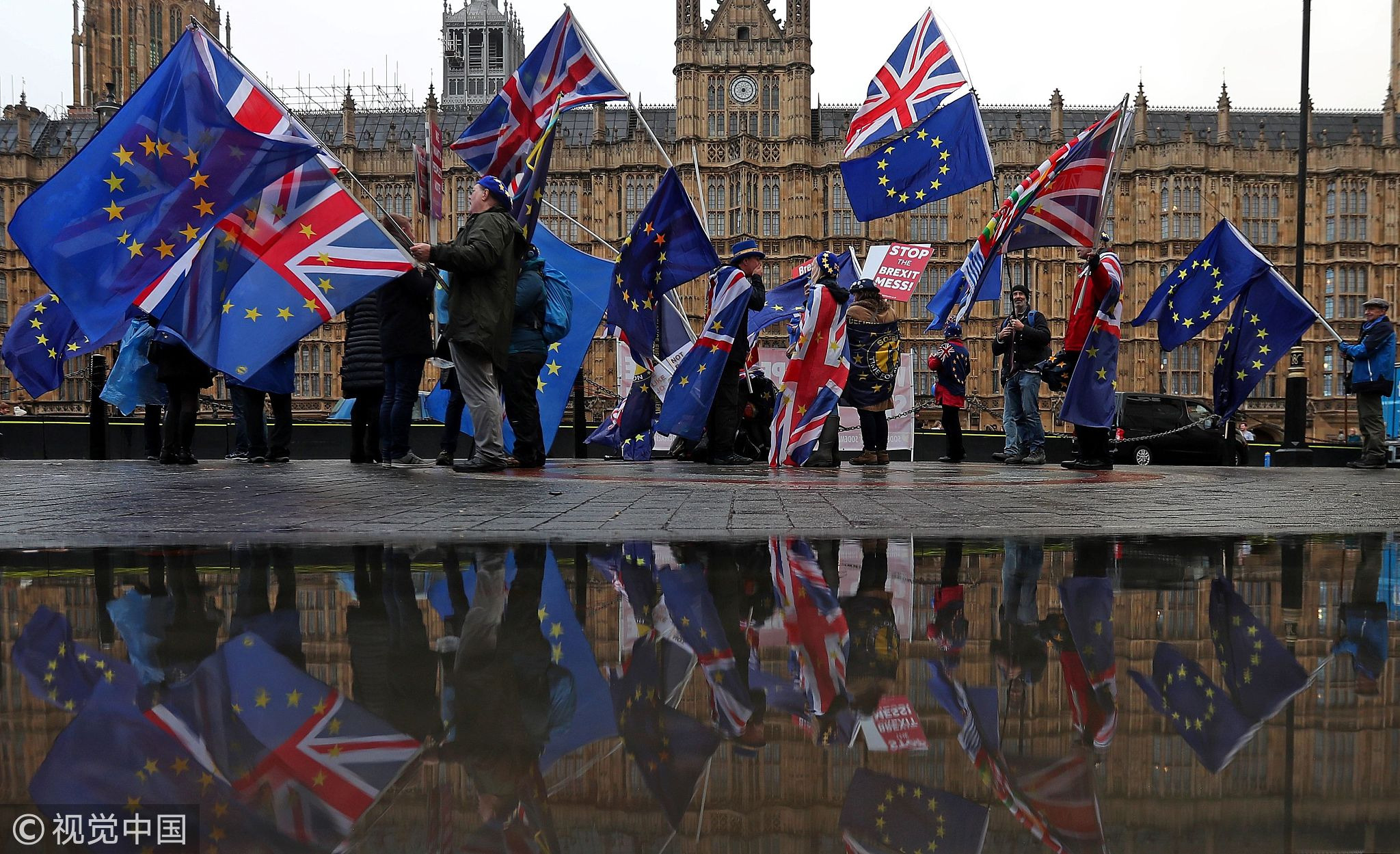
Opinions
11:16, 04-Dec-2018
Opinion: The 'Brexit backstop' spells doom for Theresa May
Updated
10:47, 07-Dec-2018
Tom Fowdy

Editor's Note: Tom Fowdy is a UK-based political analyst. The article reflects the author's views, and not necessarily those of CGTN.
In a heated parliamentary debate on Monday night, British Attorney General Geoffrey Cox scrambled to defend Theresa May's Brexit agreement from criticism over the legal implications of the United Kingdom's contingency customs “backstop” with the European Union, should talk on determining the future relationship between the two parties break down.
Critics of the agreement, including Brexiters, have highlighted a fear that should this contingency occur, the United Kingdom may be divided by differing obligation to the European Customs Union without a unilateral right of withdrawal.
As the attorney general attempted to defend this position, numerous MPs accused the government of attempting to hide or obscure the full legal implications of it. The highly revealing debate dealt yet another blow to Theresa May's Brexit strategy, which looks almost certain to be defeated in the Parliament.
Why is the issue of a “Brexit backstop” so significant and contentious? As the process of Brexit has been ongoing, there has been a concern that the imposition of a “hard border,” thus immigration and customs checks, between Northern Ireland and the Republic of Ireland, could violate the terms of the 1998 Good Friday agreement which upholds an open, unregulated border between the two territories.

Members of Parliament Caroline Lucas, Chuka Umana and Justine Greening hand in a petition demanding a second referendum on Brexit to 10 Downing Street in London, Britain, December 3, 2018. /VCG Photo
Members of Parliament Caroline Lucas, Chuka Umana and Justine Greening hand in a petition demanding a second referendum on Brexit to 10 Downing Street in London, Britain, December 3, 2018. /VCG Photo
Because the Republic of Ireland is a member of the European Union, a potential change in the customs arrangements between the United Kingdom and Brussels caused by means that in the event of Brexit such an open border would become legally untenable; for differing customs would require regulations. This has made the Northern Ireland border a key theme of Brexit negotiations. So far, no formal solution has been found.
As a result, the “Brexit backstop” is the EU and UK's contingency plan for preventing the Good Friday agreement from collapsing. As part of Theresa May's agreement with the Union, should talks upon resolving the border issue and the broader economic relationship fail, then Northern Ireland would “temporarily” be absorbed into the European Customs Union and single market jurisdiction until a better arrangement can be secured between the two. Thus, it is intended to be a last resort.
But, as revealed in Monday's debate, there are huge legal questions hovering over the validity of such agreement. If endorsed, the Brexit agreement proposed by Theresa May becomes a legally binding treaty. Thus, this agreement permanently defines Britain's future legal, structural, security and diplomatic relationship with the European Union.
The Northern Ireland backstop is a part of this treaty. Whatever comes afterward to the agreement, specifically involving trade and so on, thus must be conducted within the rules and scope of what the former has made legally permissible, this, in turn, is not binding. The United Kingdom has no unilateral right of withdrawal, such can only be determined by mutual agreement.
This means that if things go wrong and the Northern Ireland backstop is implemented, it essentially becomes a binding legal obligation for the UK to uphold it which cannot be terminated without Brussels' consent, which means it cannot be removed if the two parties don't agree.

Pro-European Union (EU), anti-Brexit demonstrators wave Union and EU flags as they protest in opposition to the Houses of Parliament in London, Britain, December 3, 2018. /VCG Photo
Pro-European Union (EU), anti-Brexit demonstrators wave Union and EU flags as they protest in opposition to the Houses of Parliament in London, Britain, December 3, 2018. /VCG Photo
Monday's debate sought to hold those legal implications to scrutiny, and the criticism was scathing. Brexiters have been quick to point out that such an outcome risks dividing the United Kingdom and will violate national sovereignty, as well as prolonging the jurisdiction of the European Court of Justice, both aspects that were proclaimed as “red lines” by Theresa May in her talks.
Attorney General Cox attempted to defend the position by stating the backstop was a “calculated risk” and if the worst happened, that the government could get out of such an arrangement by launching a legal challenge via the terms of Article 50.
However, he and the government had refused to publish all of the advice concerning it, something which has led all the other parties, the Democratic Unionist Party included, to write to the speaker and accuse the government of contempt of parliament.
In any case, Cox's defense of the agreement and his reassurances were not convincing. Instead, his setting out of the legal challenges has not strengthened the case for May's deal, but it has fundamentally weakened it. Although May has vowed to fight on and engage her MPs to vote for it, it seems the chances are slim that Brexiters would endorse an arrangement which could so readily compromise the UK.
Therefore, Monday's debate only served to spell out in even larger letters the inevitable doom of Theresa May's Brexit deal. Sources close to the cabinet claim the government is likely to lose the parliamentary vote by a deficit of near 400.
The narratives and positions are already set in stone, few are going to be convinced otherwise now that such a deal is either a disaster, as they assume Brexit as a whole, or it is a capitulation and white flag. No turning back now.
(If you want to contribute and have specific expertise, please contact us at opinions@cgtn.com.)

SITEMAP
Copyright © 2018 CGTN. Beijing ICP prepared NO.16065310-3
Copyright © 2018 CGTN. Beijing ICP prepared NO.16065310-3